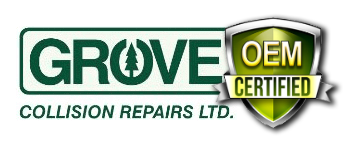Vehicle Care Tips
- Follow manufacturer’s recommendations for oil and filter changes–typically every 3,000 to 4,000 miles.
- Replace engine oil, transmission fluid and fuel filters on a periodic basis.
- Schedule periodic engine tune-ups to keep your car running smoothly. Take your vehicle to a technician at the first sign of trouble to avoid causing more costly damage.
- Vacuum out your vehicle’s air cleaner housing and wipe with a damp rag before installing a new air filter to keep dirt out of engine and maximize filter life.
- Check battery fluid regularly–especially if your battery is more than two years old.
- Periodically check tension on drive belts to ensure they do not give more than half an inch.
- Lubricate door hinges, door latches and hood hinges periodically.
- Have your vehicle’s tires rotated and balanced at least every 10,000 miles.
- Check tire inflation once a month to maximize fuel efficiency and avoid accidents from underinflated tires.
- Follow manufacturer’s recommendations for coolant flush schedules on late model Ford, Lincoln and Mercury vehicles with V-6 and V-8 engines. Old coolant can cause expensive, internal corrosion around the water pump, time cover and thermostat housing bolts.
- Sticking or noisy power steering columns on older cars can sometimes be fixed by adding 1/2 can of STP or similar additive. DO NOT TRY THIS ON LATE MODELS OR EXPENSIVE VEHICLES.
- Change your windshield wipers at least once a year.
Accident Tips
- Stop at once. Report the accident to the police station of the city in which the accident occurred.
- Make sure no one is injured. If injuries appear serious, call an ambulance.
- Write a complete description of the accident as soon as possible.
- Call your Insurance Company and/or agent.
- Have even minor damage repaired. For safety purposes, whether your car has a broken tail-light or a cracked windshield, having your car repaired in a timely manner may not only benefit your car’s condition, but it can also prevent future accidents and injuries.
- Some insurance companies ask you to go to their drive-in claims center; however, the choice is yours and you can choose to leave your vehicle at your collision repair shop and ask the insurance company to inspect it there.
- It is your right to go to the repair shop of your choice. There is no insurance company that can require you to go to a particular shop.
- MOST IMPORTANTLY, once you have chosen your autobody collision expert, let that expert work with you during your negotiations with your insurance company. Experience with insurance companies and experience in vehicular auto-body repairing is a winning combination for you.
